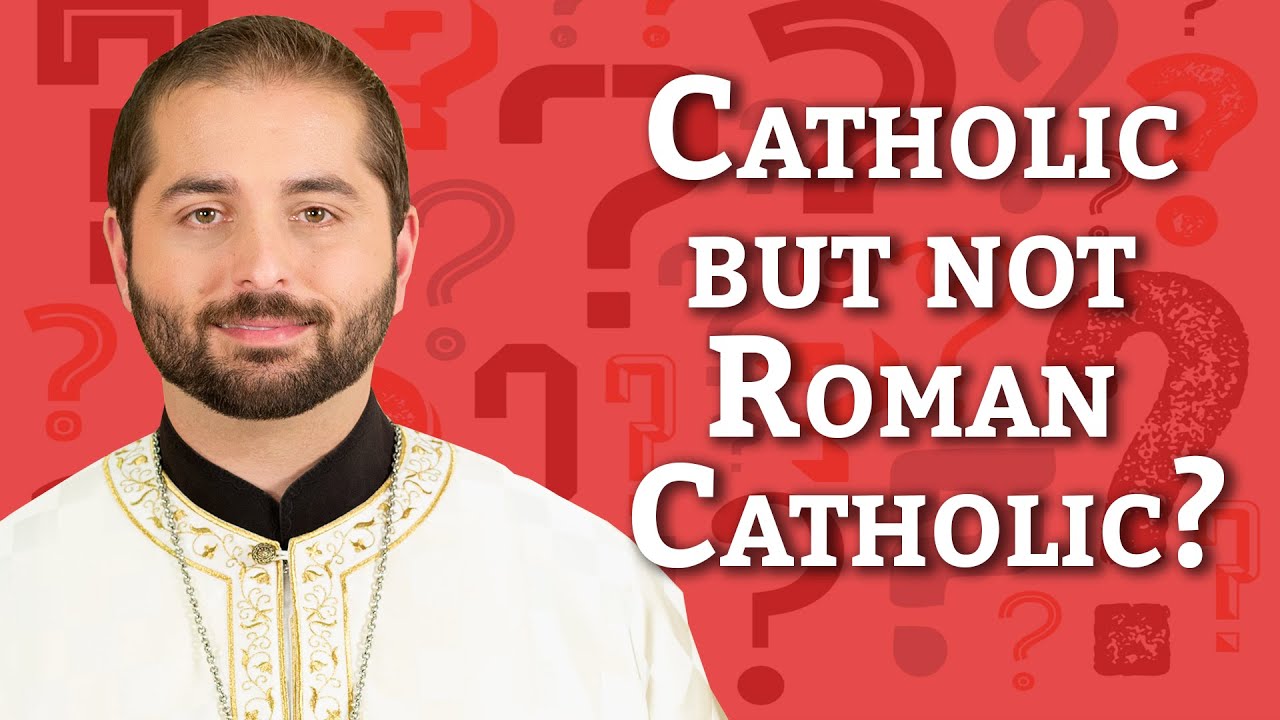
Many of us believe that new beginnings are one-time opportunities—and if we miss that one-time chance, we think that’s it. No turning over a new leaf until a new and specific opportunity arises.
But that is not true.
Whether it is a new year, a new week, or a new day, each of us has a chance to begin again. In fact, we can begin again in each and every moment.
This topic is so important that we offer you a seven-day program on it. This program is called Nunc Coepi, which is Latin for “begin again.” Fr. Joseph Matlak presented some beautiful teaching on this topic in the series videos, while Peter Gohn wrote the accompanying articles.
Most of us need a chance to build up our hope and tackle life with new zeal. Let the following words do just that.
The following excerpt is taken from Nunc Coepi: Begin Again.
Leave the past behind. Start again.

We often let our own pasts get the better of us. Shame for our sins, discouragement from having failed before, fear of making changes…these things can weigh us down and prevent us from making progress.
We may tell ourselves that we’ll make a new beginning “when circumstances are different, or when the right time comes.” But the right moment never seems to come, and in the meantime, we coast along without direction.
The Lord doesn’t want us to live in fear of the future or in shame over our past. He calls us to start again. His desires to wash away the sins of our past, and to guide our future with His Providence. We must follow Him now, not later. Rather than giving in to discouragement, we must allow Him to complete the good work that He has begun in us (Philippians 1:6).
We must begin again.
Nunc Coepi: Motto of the Saints
The phrase “nunc coepi,” which means “now I begin,” perfectly encapsulates the call to a new life in Christ. These simple words hold the secret to consistent progress in the spiritual life. St. Francis of Assisi, St. Josemaría Escrivá, and Venerable Bruno Lanteri all show us the way to Christ through a ready willingness to start over.
Our Lord invites us to serve Him and follow Him now, in this immediate moment, without delay. He does not wait for us to be perfect, or to be in the right mood, or to have the ideal physical and spiritual tools. We may feel regret towards what we have or haven’t done in the past, but these emotions and preoccupations don’t change what God asks of us now.
Discerning God’s will and striving to do it in the present moment is a key part of beginning again.
“How Can I Know What God is Asking of Me?”

The present moment is like an ambassador that declares the will of God. The heart must listen and answer “Let it be so.”
Firstly, God has already told us exactly what He wants from us through the revelation that has come to us through Scripture and the Sacred Tradition of the Catholic Church. The Ten Commandments, the Precepts of the Church, and all the moral teachings of the Church: these are the things that God asks of us. We are called to know what these teachings are and to live them as well as we can. If we fail in some way, we absolutely should not give up in despair; we simply renew our efforts to uphold the laws of God.
Once we know how God has called us to live in regards to morals and sacred obligations, we are ready for the next question: how can we know what God wants from us in the present moment?
Most of the time, our individual vocations and responsibilities show us very clearly what God’s will is for us. Venerable Lanteri wrote about this when giving advice:
“God has placed me in this state of life; in this and no other I must serve him and be saved. All the circumstances and events in my state of life, such as the different characters of the persons with whom I interact, the events that take place, the times and places in which these occur, reveal the order of Providence through which the Lord has willed to work my salvation. I must adapt myself to all these things and not think that I can force them to adapt themselves to me. And so, I will try always to adapt to these with peace and joy of heart, confident that God knows better than I what is best for me.”
When we ask the question “What does God want of me?” we should first look around us. If we are among others, we should treat them with charity. If we are alone, we must conduct ourselves with the awareness that our guardian angel—and God Himself—are present with us. If we have a responsibility, such as an errand to run or some work to do, we ought to do it with integrity and dignity. If we are at rest, we must thank God for that moment’s repose and allow ourselves to be loved by Him in that moment.
Don’t Let Emotions Drive Your Actions

St. Josemaría Escrivá, a beloved mentor to those around him, knew that it was deeply problematic to allow emotion to drive action. A student once told him about her peers, who thought that they should only pray when they felt like it, because doing things without really wanting to seemed hypocritical and empty.
St. Josemaría replied:
Listen, my daughter, I very seldom really feel like it. We have to do things we don’t feel like doing and then, as they’re based on sacrifice and are difficult, they are much more fruitful and are worth much more before God. They shine like stars in the night. When you go to some prayer and you don’t feel like praying and you can’t think of anything to say, put yourself in God’s presence and tell him: “Lord… I really don’t feel like talking to you, I don’t want to spend a minute on you, I feel as if I’m doing you a favor.”
And you’ll hear in the depths of your heart like a sudden shout, loving, but strong, a cry from God: “I’m the one doing you the favor when I call you to serve me, when I call you to have a conversation with me, when I tell you that I want to make friends with you, with your very soul.”
And then, whether you feel like it or not, you’ll go and spend time praying every day, at home or in the street or at the office or in the university or in your studio, or on the motorway traveling, or in church in front of the Tabernacle…knowing that he’s listening to us, to tell him that we don’t feel like it—and we are already praying…
[Then], the day you don’t talk to God, whether you feel like it or not, that day you’ll be hungry to pray.
We don’t have to be emotionally “ready” to do the Lord’s will. We don’t even have to want to do the Lord’s will. But we do have to choose His will. We must use our free will in the present moment, in accordance with grace, if we want to make any progress.
If we want to get better at following the will of God now, in this very moment, then we also need to foster the virtue of humility within ourselves. When St. Bernard of Clairvaux was asked which three virtues were most important to achieving holiness, he replied: “Humility, humility, and humility.”
As we seek to foster a hopeful spirit of “beginning again” within ourselves, let’s take St. Bernard’s words to heart, and consider how humility can help us.
What Humility Is, and What It Is Not
In his Summa Theologica the great Doctor of the Church, St. Thomas Aquinas, defines humility in the following way: the virtue of humility consists in keeping oneself within one’s own bounds, not reaching out to things above one, but submitting to one’s superior.
At first glance, St. Thomas’s words are what we’d expect from stereotypical humility: not thinking highly of oneself, staying in one’s limits, and submitting to a superior.
However, note what St. Thomas does not say. He does not say that humility is thinking poorly of oneself, believing that you are worthless, eschewing goals and ambitions, or being a doormat for other people.
Humility, then, is not about seeing oneself through a lens of deprecation. It is to see oneself through the lens of truth. The truly humble person is one who knows himself and acts accordingly.
Making a Good Confession is an Act of Humility
Considering all of these points together, there is no better thing we can do to truly start over than to frequent the Sacrament of Confession. When we make a good Confession, we practice humility, vocally admit our sins, reject lukewarmness, and trust that God will have mercy on us. Confession is the most powerful tool for transforming us into men and women who truly seek God. The Sacrament of Confession has three parts: contrition, confession, and penance. Each part is necessary to receive the sacramental grace that God offers us and thus make a truly new beginning.
First, we must be contrite for our sins. That is, we must be sorry for having sinned, and resolve to sin no more. We profess this sorrow and resolution within the Act of Contrition, in which we say, “I am heartily sorry for my sins,” and “I firmly resolve, with the help of Thy grace, to sin no more…” With these words, we consciously manifest the contrition of our hearts and beg for the mercy of God.
Second, we confess our sins to the priest, who stands before us in the person of Christ. When we do this we practice humility and, by examining our actions, grow in self-knowledge and trust in God.
The confession (or disclosure) of sins, even from a simply human point of view, frees us and facilitates our reconciliation with others. Through such an admission man looks squarely at the sins he is guilty of, takes responsibility for them, and thereby opens himself again to God and to the communion of the Church in order to make a new future possible (The Catechism of the Catholic Church, 1455).
Lastly, we make reparation for our sins through penance, entering into the suffering that Jesus Christ underwent for our sake. By doing so we take on a tiny portion of the punishment that is due to us for our sins, and allow Christ to stand in our place so that His overwhelming Love can work within our lives.
Considering all these profound graces, it should be no surprise that this sacrament is vital for our progress in the spiritual life. If we want to make a habit of beginning again, we should make a habit of going to confession. Venerable Bruno Lanteri said:
“I will go to Confession and receive Communion every eight days as I have done for many years. These sacraments are the channels that God has established to communicate to me his graces and his light. Therefore my perseverance depends upon the faithful practice of them. When I approach these sacraments, I will ask insistently of my Lord the help I need to fulfill the obligations of my state of life.”
This is just the beginning. If you want to learn more about how to faithfully “begin again” in the spiritual life, sign up for our seven-day series. Visit GoodCatholic.com to see all available online series.






